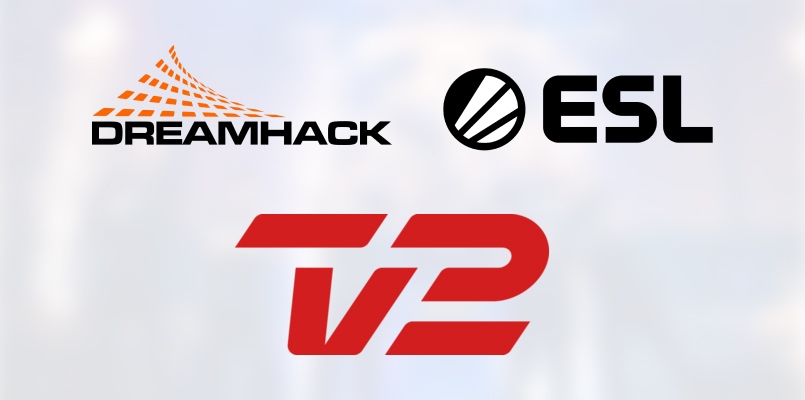Mentioned in this article
League/Tournament Brands:
- ESL and DreamHack have agreed to an expanded Danish-language broadcast rights deal with TV 2 Denmark.
- The three-year agreement to broadcast the ESL Pro Tour for Counter-Strike: Global Offensive runs until Feb. 2023.
- The ESL Pro Tour will span more than 20 competitions from the sister companies in 2020, and award more than $5M USD.
TV 2 Denmark has acquired exclusive Danish broadcast rights to the upcoming ESL Pro Tour for Counter-Strike: Global Offensive (CS:GO), thanks to a new three-year deal with ESL and DreamHack.
DreamHack and ESL are sister companies through parent Modern Times Group (MTG), and they announced in September that they are collaborating on the tournament series. The ESL Pro Tour will feature more than 20 competitions spread between ESL and DreamHack events, with more than $5M USD in total prizing for 2020.
TV 2’s platform-neutral rights will run until Feb. 2023, with ESL Pro Tour content featured on its linear TV 2 Zulu channel and streaming TV 2 Play service. Terms of the deal were not disclosed.
The new deal is an expansion of a previous agreement announced in Dec. 2018, which gave TV 2 broadcast rights to ESL and DreamHack CS:GO events. The network had previously aired CS:GO events from RFRSH Entertainment’s BLAST Pro Series.
“It is very important to us that the viewers at home get just as great an experience as the on-site audience when watching DreamHack Open and DreamHack Masters,” said DreamHack co-CEO Peter Nørrelund, in a release. “Over this past year, TV 2 Denmark has shown that they are able to provide the Danish audience with just that: a great experience based on a combination of their high-quality production, a dedicated team, and our content. We are therefore excited to announce this new agreement which will make TV 2 Denmark the go-to source for DreamHack CS:GO content until 2023.”
“This is a strong testament to the attractiveness of the new ESL Pro Tour, which has the potential to revolutionize the world of competitive esports,” Nørrelund continued, “and significantly lower barriers for advertisers and broadcasters to engage with esports as a channel to reach their key audiences.”

